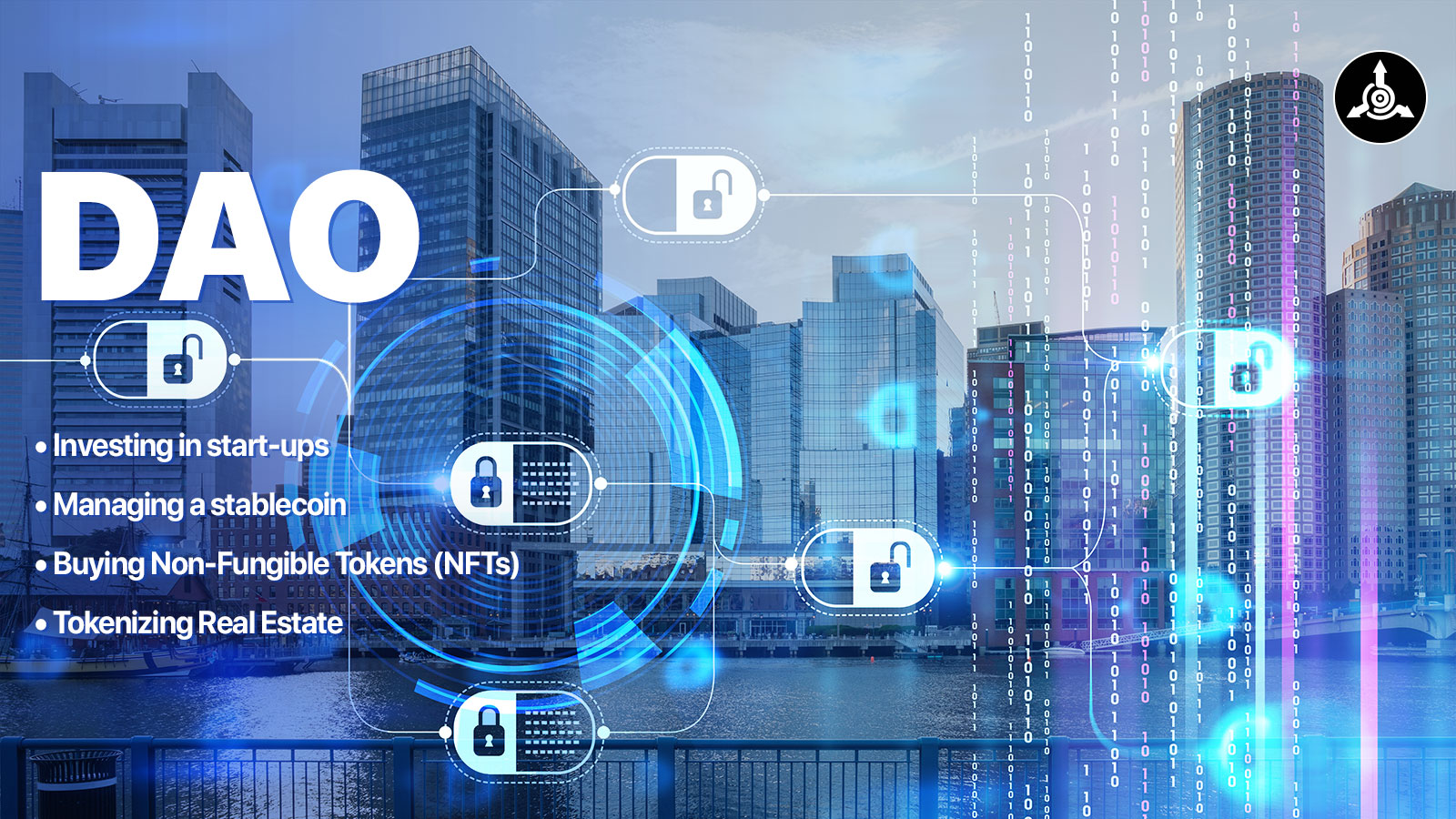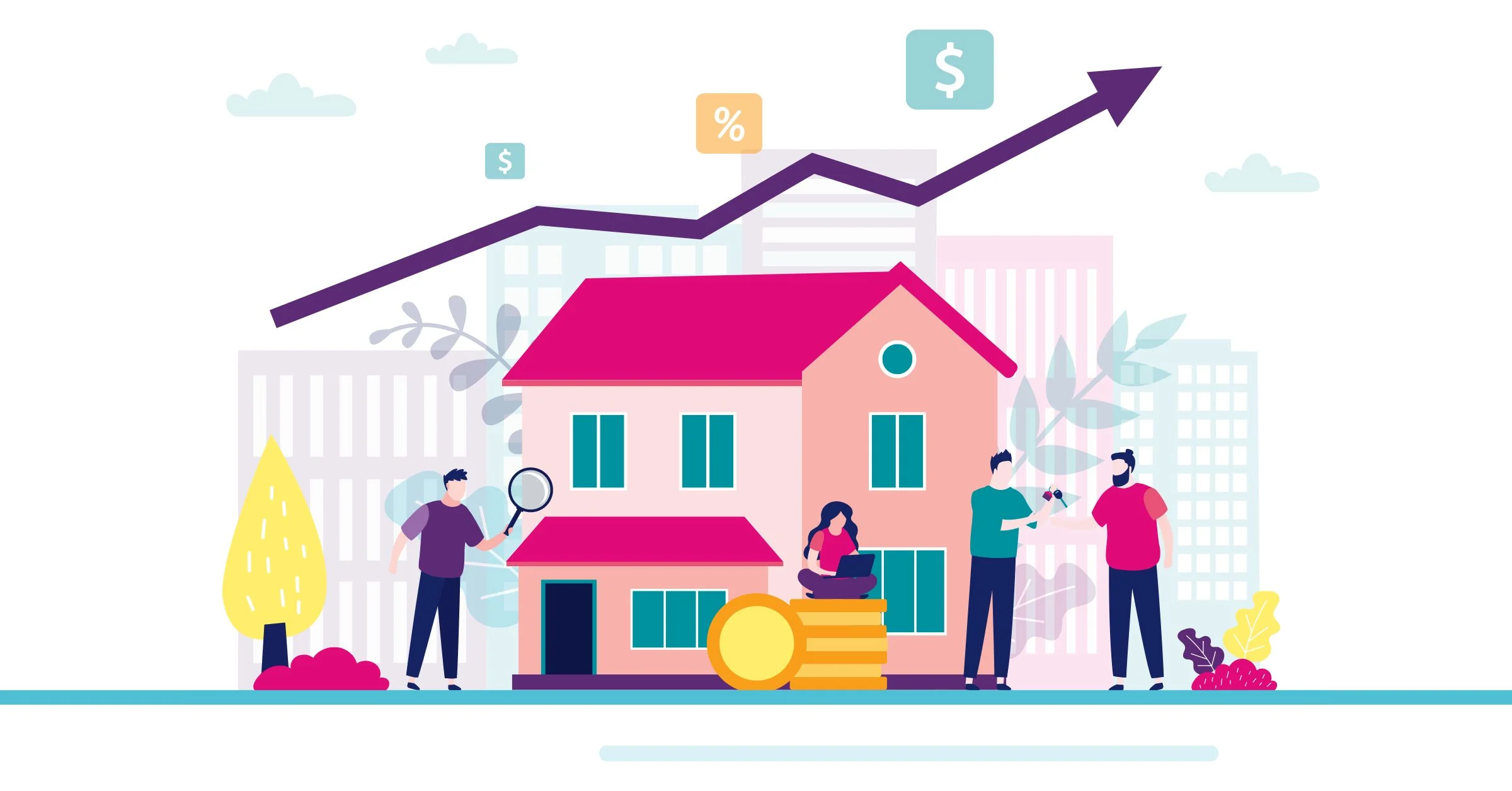- May 24, 2024
- 6 min de lectura
What Are DAOs and Why Invest in Them
DAOs have been making a distinguishable impact in the financial and technological world. These novel entities operate on blockchain, giving participants improved flexibility, transparency, and global accessibility.
Many describe DAOs as game-changers for individuals and businesses, especially Small and Medium-sized Enterprises (SMEs). Here's what you should know about DAOs.

What is a DAO?
DAO stands for Decentralised Autonomous Organisation. It's a mouthful, isn't it? But it's pronounced "dow," so it's manageable. DAOs are a new kind of organisational structure based on blockchain technology.
In their purest form. DAOs are a collective formed for a common purpose, such as but not limited to:
- Buying Non-Fungible Tokens (NFTs);
Many blockchain networks, including ConsenSys, define DAOs as – governing bodies overseeing the distribution of resources and ensuring the success of endeavours they are linked with.
Once established, a DAO is run by its members, generally via tokens. The tokens grant certain rights to their owners, like the ability to administrate a shared treasury or vote on decisions of primary and secondary importance.
How Does a DAO Work?
It begins with programmers coding the smart contract that will narrate the process of minting tokens, allocating votes, and automating financial transactions. For instance, votes can be assigned by total investment, based on a logarithmic curve, or grouped by wallets.
DAOs also require a legal structure, as some countries have designated them as entities with legal status. Moreover, in some regions, like the United States of America, it's mandatory for DAOs to be registered as securities.
Then, the DAO's proponents must promote the platform to interested investors and participants. Depending on the organisation's structure, individuals can become members through direct financial contributions or by executing tasks validated via a portal or some other type of resource. For example, an innovative environmental monitoring app can reward participants who are playing a part in gathering sensor data.
Once a DAO is running, members of its community can help support legal efforts for causes they believe in or assist individuals and businesses in acquiring valuable assets, such as:
- Residential or commercial real estate;
- Equity stakes in companies;
It's also possible for participants to witness an appreciation of their token's value as the organisation starts earning returns.
What Are the Advantages of DAOs?
Decentralised autonomous organisations can offer different benefits to their members and users. They can do the following:
- Automate financial operations associated with distributed organisations;
- Accelerate fundraising for start-ups with innovative ideas;
- Democratises decision making;
- Streamlines allotment of returns and gains;
- Enhances transparency concerning regulations related to investments and decisions;
- Be available to individuals worldwide, regardless of their background;
Why Does the World Need DAOs?
Because of their internet-native nature, DAOs have several strong points compared to conventional organisations.
One of the biggest perks of DAOs is the minimal trust necessary between two parties. While legacy businesses require maximal confidence in their people – especially on behalf of investors – with DAOs, only the coding needs to be trusted.
Believing the code is much easier as it's publicly available and can be tested diligently by all interested parties before launch. Furthermore, any decision a DAO makes after deployment must be approved by its members and completely verifiable and transparent.
5 Reasons to Invest in DAO
Elimination of Intermediaries
Decentralised autonomous organisations remove the need for intermediaries, like legal entities or banking institutions, by relying on smart contracts to automate decision-making and governance procedures. It decreases operational expenses and limits manipulation and fraud risks.
DAOs draw investors because they can directly communicate with the organisation without dealing with third parties, resulting in greater accountability and efficiency.
Flexibility and Customisation
Offering a high degree of flexibility and customisation, DAOs enable participants to tailor decision-making processes and governance frameworks to their preferences and needs. It allows DAOs to adapt to ever-changing market conditions and regulatory protocols easily.
Individuals are willing to put money into DAOs because they gain the authority to actively participate in shaping the organisation's policies and direction, ensuring their interests are protected and appropriately represented.
Potential for High Returns
Investing in decentralised autonomous organisations presents an opportunity for high returns. As DAOs continue to procure popularity and distort traditional business operations, early adopters will undoubtedly benefit the most from this innovative solution.
With the possibility of participating in decision-making, management, and revenue-sharing mechanisms, investors can capitalise on the value generated by DOAs and potentially benefit from considerable returns on their investment over time.
Global Accessibility
Global accessibility is arguably the most compelling reason to invest in DAOs. Since they operate on blockchain, they're not limited by local jurisdictions and geographical boundaries. It means that anyone with access to the Internet can become a member of a DAO community.
This level of accessibility provides individuals and SMEs with opportunities that are otherwise exclusive to institutional entities and high-wealth individuals.
Transparency and Trust
Unlike conventional organisations, where different processes, including decision-making, are often cloudy, DAOs offer an unprecedented level of transparency and trustworthiness. Using immutable smart agreements, they are publicly accessible via blockchain technology.
This limpidity fosters confidence among participants as anyone within the decentralised autonomous organisation's community can verify every decision and transaction. Investors who decide to place their funds in DAOs can benefit from a clear view of how their money is used. They can also actively engage in decision-making operations.
Examples of DAOs
ConstitutionDAO is probably the most famous decentralised autonomous organisation currently. It consists of thousands of crypto enthusiasts who raised over $45 million in a week to bid on a rare copy of the U.S. Constitution.
Other notable examples are:
- CityDAO bought 40 acres (about twice the area of Chicago's Millennium Park) of land in Wyoming.
- MarkerDAO established a new type of decentralised bank based on consensus voting.
- PleasrDAO is a group of crypto artists, investors, and entrepreneurs who gathered funds to bid on artworks by well-known digital artists.
Conclusion
Decentralised autonomous organisations present a great opportunity for individuals and businesses to be part of the future of decentralised finance and governance. DAOs offer their participants different benefits that legacy institutions cannot provide. As the world continues to accept the advantages of decentralised operations, DAOs are expected to become an integral part of the modern-day business landscape. The time to invest in them is now!
kirsan.co.uk


.png)











